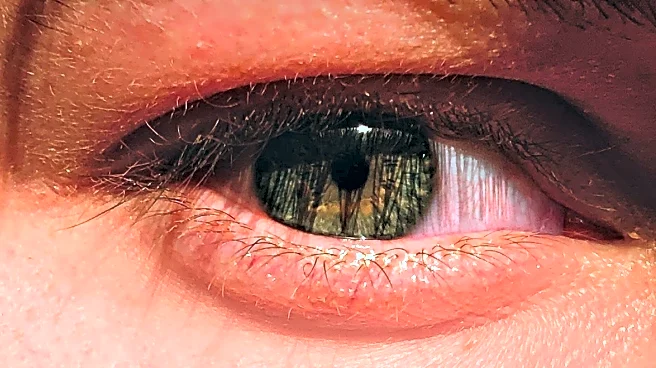What's Happening?
A recent study has highlighted ongoing disparities in diabetic retinopathy (DR) outcomes among socially deprived individuals, despite adherence to treatment. The research indicates that social deprivation is linked to higher incidence and severity of DR, even when patients adhere to prescribed medications and treatments. Despite increased use of ophthalmic interventions, socially deprived individuals face greater risks of DR progression and sight-threatening complications. These disparities persist across various demographic groups, suggesting systemic factors beyond healthcare access influence long-term DR outcomes.
Why It's Important?
The findings underscore the impact of social determinants on health outcomes, particularly in chronic conditions like diabetic retinopathy. Addressing these disparities is crucial as early DR treatment can prevent severe vision loss, which has significant public health and economic implications. Socially deprived individuals face elevated risks of blindness, contributing to economic instability and reduced quality of life. The study calls for targeted interventions that address structural and social barriers to equitable healthcare access and management.
What's Next?
To mitigate these disparities, systemic reforms are needed, including integrating social determinants of health screening into care models and leveraging technology for early detection. Culturally responsive care and interdisciplinary collaboration among healthcare providers can improve coordination and reduce preventable vision loss. Future efforts should focus on personalized care strategies that address both medical management and the social factors perpetuating inequities in DR outcomes.










